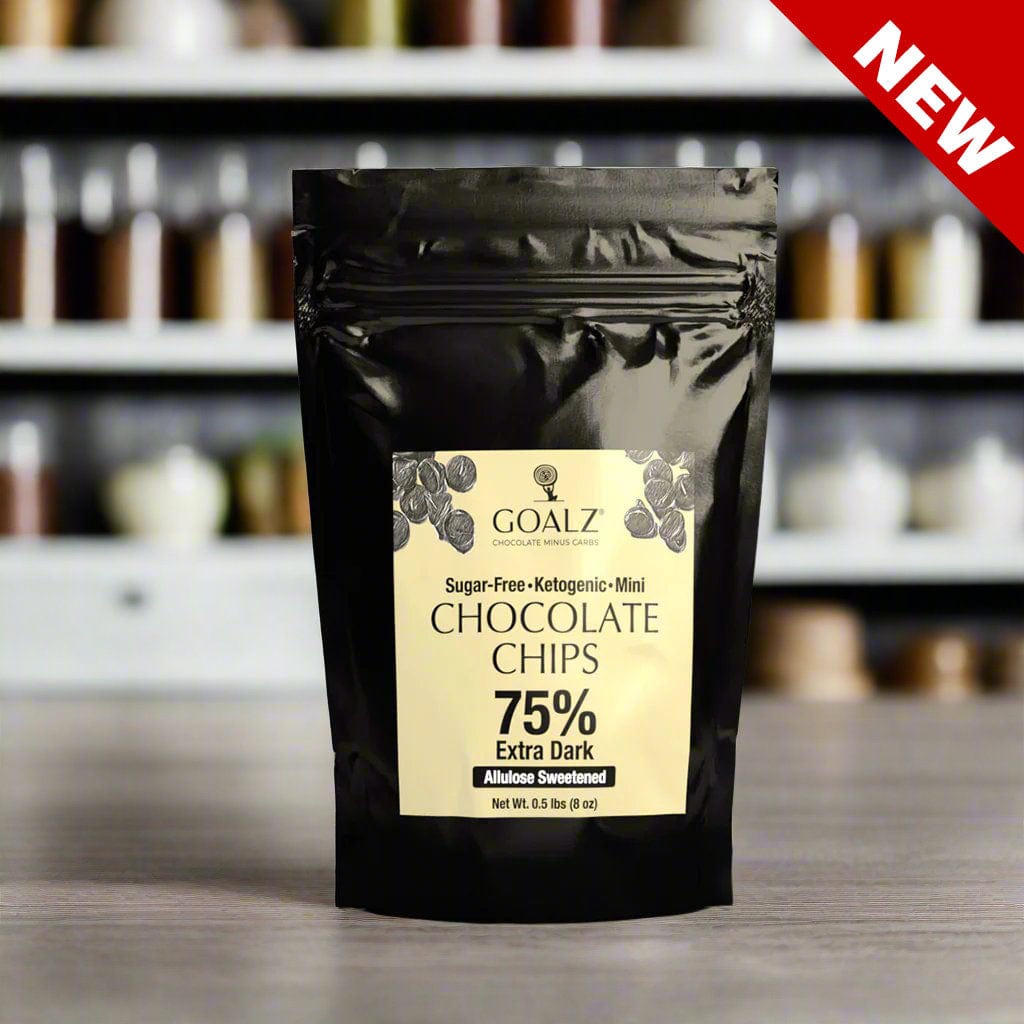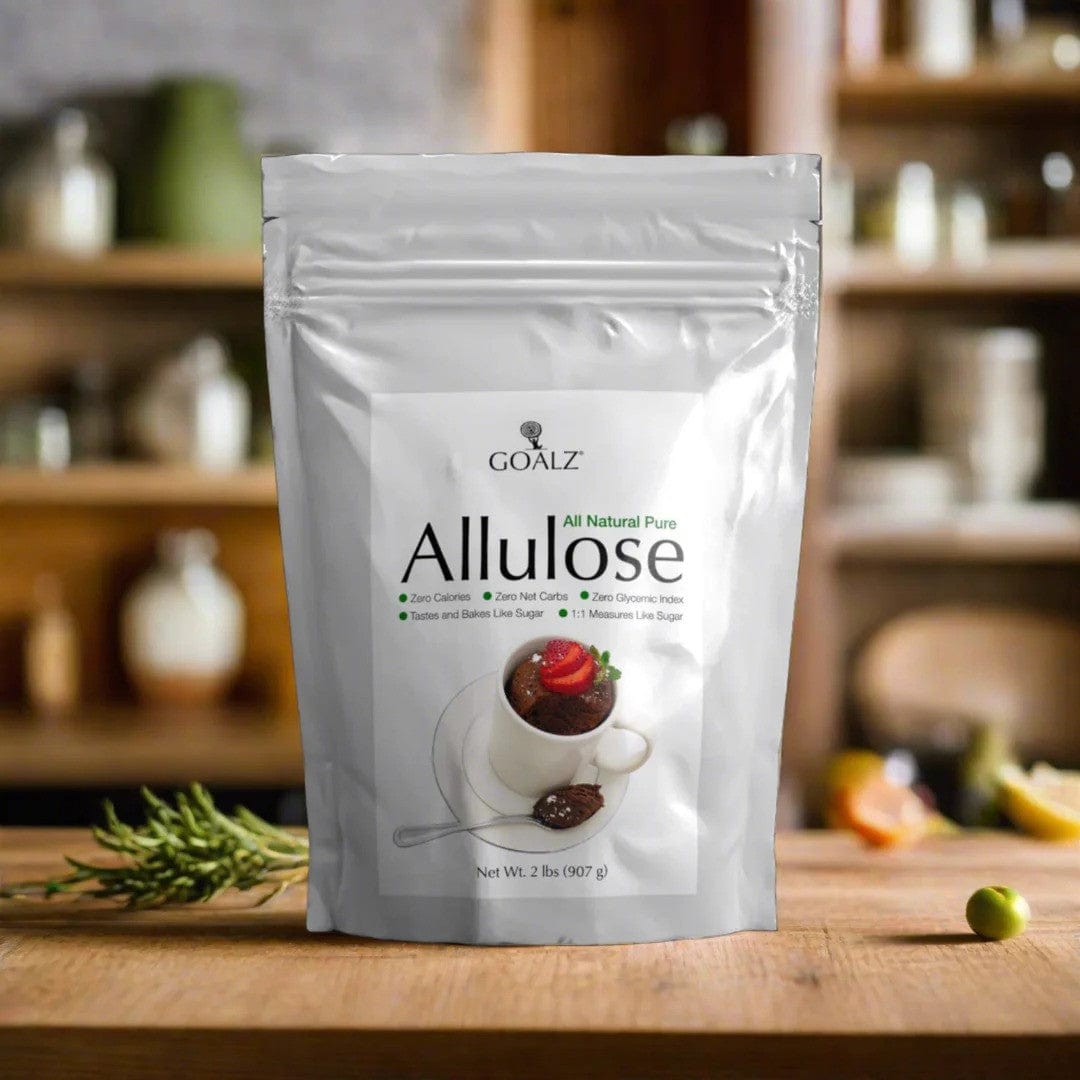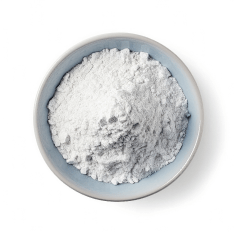Allulose is rather a new sweetener on the market. It is embraced with excitement due to its properties that resemble sugar without the side effects of sugar. In general, it is preferred because:
- It is natural. It exists in nature in small quantities.
- It can be manufactured with simple fermentation
- It tastes like sugar. When used in food, there is no need for agents to mask the aftertaste like many other sweeteners
- It can replace sugar in many existing recipes since its sweetness amount is very close to sugar. 1 cup of sugar can be replaced by 1.44 cups of Allulose. This eliminates the need for fillers as in the case of many sweeteners like Monk Fruit and Stevia.
- It has almost zero calories.
- It has zero net carb effect since it is not metabolized by the body.
- It doesn't spike blood sugar levels since it is not metabolized.
These are very well-known facts, however, still, many questions exist about Allulose's effect on the body, both short-term and long-term. The questions are valid since it is a rather new sweetener and many artificial sweeteners and sugar-alcohols were introduced as the best solution but came with their side effects. Compared to these, Allulose had advantages from the start since it exists in nature in fruits such as figs and grapes and the research in sweeteners has already matured with the right questions to tackle. While much scholarly research focuses on the manufacturing and commercial use of Allulose, an increasing number of researchers are working on the benefits and potential side effects of Allulose.
Some of the recent research on the health effects of Allulose are as follows:
Obesity
A study conducted at UC Davis involved 100 overweight and obese adults who were randomly assigned to receive either a diet that contained allulose or a diet that contained sucrose (table sugar). The participants followed their assigned diets for 12 weeks. At the end of the study, the participants who received the allulose diet had significantly less weight gain than the participants who received the sucrose diet. The allulose group also had significantly less body fat gain and a significantly greater decrease in body fat percentage. The researchers concluded that allulose may be a beneficial alternative to sucrose for weight loss.
Blood Glucose Management
In another study, the same group at UC Davis conducted a study in 2020 and researched the effect of Allulose on glycemic control and insulin sensitivity. At the end of the study done on 40 obese adults, the participants who received the allulose diet had significantly better glycemic control and insulin sensitivity than the participants who received the sucrose diet.
A recent study in Japan focused on the postprandial blood glucose changes in healthy humans. Researchers compared groups that took Allulose in 5g and 10g amounts, against a control group that didn't take Allulose. The postprandial (after-meal) blood glucose levels of the Allulose intake groups (both 5g and 10g) were significantly lower than the control group. They concluded that Allulose is a valuable blood glucose management tool for healthy humans and diabetes patients.
Gut Microbiome
A recent study in 2022 involved mice that were fed a high-fat diet for 12 weeks. The mice were then randomly assigned to receive either a diet that contained allulose or a diet that contained sucrose. The mice followed their assigned diets for an additional 12 weeks.
At the end of the study, the mice that received the allulose diet had a significantly different gut microbiome than the mice that received the sucrose diet. The allulose group had a higher abundance of beneficial bacteria, such as Bifidobacterium and Lactobacillus. The allulose group also had a lower abundance of harmful bacteria, such as Bacteroides and Clostridium. Additionally, the mice that received the allulose diet had a significantly improved intestinal barrier function. The allulose group had a lower intestinal permeability and a higher expression of tight junction proteins.
The researchers concluded that allulose may have a beneficial effect on the gut microbiome and intestinal barrier function in mice fed a high-fat diet. Allulose may help to increase the abundance of beneficial bacteria, decrease the abundance of harmful bacteria, and improve intestinal barrier function.
Accumulation of Fat in the Liver
A recent study that appeared in "Molecular Nutrition and Food Research" focuses on how allulose affects the accumulation of fat in the liver. The study used mice that were divided into three groups: one group was given a normal diet and water, another group was given a high-fat diet and water, and the third group was given a high-fat diet and a solution of d-allulose. The mice were fed these diets for 8 weeks. The study found that the mice in the third group (the one given d-allulose) had less weight gain and less fat accumulation in the liver compared to the mice in the second group (the one given just the high-fat diet). Additionally, the study found that d-allulose may change certain molecules in the liver, such as miRNA, which may explain why it prevents fat accumulation.
miRNA (microRNA) are small non-coding RNA molecules that play a key role in the regulation of gene expression. They bind to specific target mRNAs, leading to either repression or enhancement of translation (the process of converting RNA into protein) of the target genes. So, in this case, the researchers found that the miR-130 levels were elevated in the group of mice that were given d-allulose, and this may be one of the underlying mechanisms that explain how d-allulose prevents fat accumulation in the liver.

Anti-Inflammatory Effects
Another study was published in "Nutrients" and aims to investigate the effects of allulose on the small intestine by using DNA microarray analysis. This technique allows for a high-throughput examination of the effects of allulose on the genes in the small intestine. They also looked at whether allulose can restore the structure and function of the rat intestine when consumed orally following a nutritional regimen called total parenteral nutrition (TPN) which can reduce the size of the intestine. They also monitored the effects of allulose on blood levels of hormones called GLP-1 and GLP-2 in TPN rats and normal mice.
In this study, the researchers found that the expression of many genes (8-fold more compared to fructose and glucose perfusion) was altered by allulose, suggesting a greater impact on the intestine compared to the effects of fructose and glucose. The study also found that allulose may stimulate the transport, metabolism, and development of the digestive system. The researchers then looked at whether allulose can restore the structure and function of the rat intestine when consumed orally following a nutritional regimen called total parenteral nutrition (TPN) which can reduce the size of the intestine. They also monitored the effects of allulose on blood levels of hormones called GLP-1 and GLP-2 in TPN rats and normal mice. They found that the expression of certain proteins that are important for maintaining the barrier function of the gut was reduced by TPN, but was restored when allulose was consumed. This research suggests that allulose may have a greater impact on the intestine than glucose and fructose and may enhance the gut mucosal barriers.
The researchers plan to investigate more on the anti-inflammatory effects of allulose and whether it has beneficial effects on some intestinal diseases, such as inflammatory bowel disease and leaky gut in future studies.
Gastrointestinal Tolerance
The above are all positive. Are there any side effects of Allulose? After all, any type of food that is not absorbed or metabolized by the body may cause gastrointestinal issues. The good thing is Allulose seems to be tolerated better than other sweeteners such as erythritol. A study published in the journal Nutrition and Metabolism in 2019, investigated the gastrointestinal tolerance of allulose in healthy young adults. The study found that allulose was well-tolerated at doses up to 0.5 g/kg body weight. However, at a dose of 1.0 g/kg body weight, some participants reported gastrointestinal symptoms such as diarrhea, abdominal pain, and bloating.
If we give an example to the above data: If your body weight is 80kg, you can consume 40g of Allulose in one sitting with no problem. If you are one of those adults who are sensitive to high Allulose consumption, you may start having symptoms at about 80g of Allulose in one sitting.
Researchers in these studies state that further research is needed.
The current research is very promising about Allulose but as researchers state: more and more research is needed. We will update this article as the new research is published.
Unlike other companies of our size, at Goalz, we emphasize the importance of scientific research in our choices. As a small family company, we have the ability to move fast and make changes as needed. Because of this, we believe our close-following of the academic studies will both benefit us and all chocolate lovers.
Based on the existing research, we believe Allulose Chocolates are the right choice for anyone who is health-conscious and avoiding sugar. However, it is a fact that every 'body' is unique and reacts differently. Therefore, it is always recommended to listen to your body and consult your doctor.
References:
- Han, J., Park, S. J., Kim, J. H., Kim, S. H., Kim, M. S., & Kim, H. J. (2018). Effects of d-allulose on body weight and body composition in overweight and obese adults: A randomized controlled trial. Nutrition and Metabolism, 15(1), 1-10. doi:10.1186/s12986-017-0310-4
- Kim, J. H., Han, J., Park, S. J., Kim, S. H., Kim, M. S., & Kim, H. J. (2020). Effects of d-allulose on glycemic control and insulin sensitivity in overweight and obese adults: A randomized controlled trial. Nutrition and Metabolism, 17(1), 1-11. doi:10.1186/s12986-019-0403-3
-
Yuma T, Tokuda M, Nishimoto N, Yokoi H, Izumori K (2023) Allulose for the attenuation of postprandial blood glucose levels in healthy humans: A systematic review and meta-analysis. PLoS ONE 18(4): e0281150.
-
Kim, J. H., Han, J., Park, S. J., Kim, S. H., Kim, M. S., & Kim, H. J. (2022). Allulose modulates the gut microbiome and improves intestinal barrier function in mice fed a high-fat diet. Nutrition and Metabolism, 19(1), 1-11. doi:10.1186/s12986-021-0526-5
- "D-Allulose Supplementation Prevents Diet-Induced Hepatic Lipid Accumulation Via miR-130-mediated Regulation in C57BL/6 Mice"
Molecular Nutrition & Food Research, December 2022, DOI:10.1002/mnfr.202200748 - Takuji Suzuki et al. "Comparative Effects of Allulose, Fructose, and Glucose on the Small Intestine",Nutrients 2022, 14(15), 3230; https://doi.org/10.3390/nu14153230
- Han, J., Park, S. J., Kim, J. H., Kim, S. H., Kim, M. S., & Kim, H. J. (2019). Gastrointestinal tolerance of d-allulose in healthy and young adults: A non-randomized controlled trial. Nutrition and Metabolism, 16(1), 1-11. doi:10.1186/s12986-018-0356-y
















I have just started using allulose in cooking and find it to be an excellent replacement for sugar. I have had the underlying question whether at some point we will find out that allulose (like others) was “bad” for us. This helps curve that concern. Thanks!
This article made me feel better about using this sugar substitute in my soft drinks. Hopefully we will see more of this sugar substitute in many food items if the research remains positive.
Muy interesante… pero que tiene que ver el chocolate, este contiene alulosa🫣
Thank you for this very informative article. It was very interesting and helpful.
Leave a comment